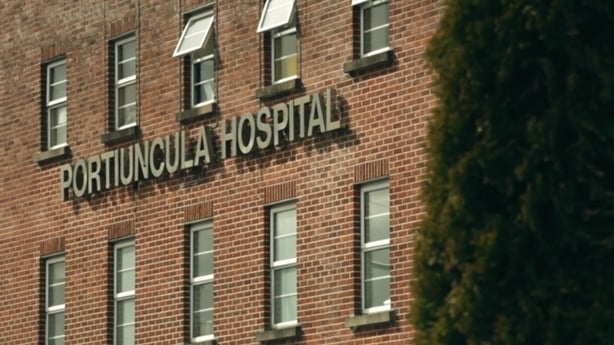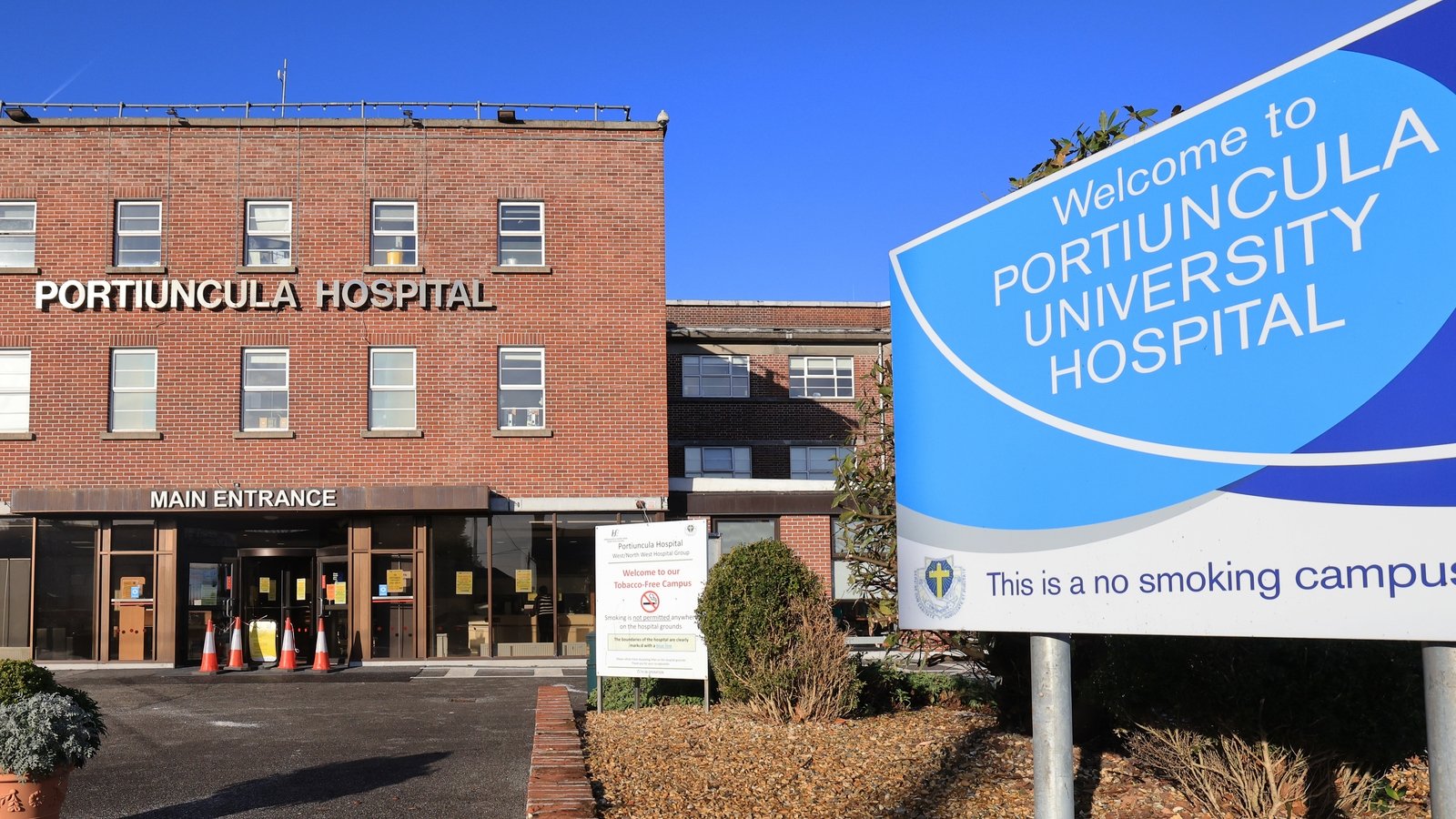Expectant mothers with pregnancies deemed to be “high risk” are to have their antenatal care moved from Portiuncula University Hospital to other locations.
The development comes as a number of reviews into maternity care at the hospital in Ballinasloe, Co Galway continue.
It is understood that the criteria for defining a high risk pregnancy there is to be expanded.
It will mean that expectant mothers with gestational diabetes, those with a high BMI and those who have experienced difficulties during previous labours will now be scheduled to give birth at other maternity units in the region.
Women considered likely to deliver before 35 weeks will also have their care moved.
We need your consent to load this rte-player contentWe use rte-player to manage extra content that can set cookies on your device and collect data about your activity. Please review their details and accept them to load the content.Manage Preferences
Staff in Portiuncula have been briefed about the planned changes and a meeting will take place later this afternoon to inform local elected representatives.
They will be told that the measures are being taken to enhance safety, in light of the concerns that prompted the reviews of the unit.
The HSE says it has committed to implementing all recommendations arising from the ongoing reviews.
But the decision will significantly reduce the number of births at Portiuncula in the future.
There were around 1,300 babies born there in 2024. That is expected to fall by three or four hundred when these changes are fully implemented.
Last January, external experts were appointed to oversee maternity services at Portiuncula University Hospital.
Decision follows concerns about nine deliveries at hospital
The decision followed concerns about nine deliveries at the hospital, since late 2023, two of which were stillbirths.
A further three births, since January of this year, are now also subject to the ongoing review process.
In many of the cases, babies experienced reduced blood flow to the brain around the time of their births.
The medical definition for this is hypoxic-ischemic encephalopathy (HIE).

The decision followed concerns about nine deliveries at the hospital
The Health Service Executive says the incidence of HIE at the Ballinasloe hospital is “significantly higher” than that observed at other maternity units nationally or internationally.
At this stage, five of the latest reviews have been completed.
They have identified issues around clinical care, governance, communication and infrastructure at the unit.
Some of those concerns were raised seven years ago, at the conclusion of an earlier review into maternity care at Portiuncula.
Those were the findings of the Walker report, commissioned after seven babies experienced oxygen deprivation during childbirth, over a ten month period in 2014.
Two of those babies died and the other five had to be transferred to hospital in Dublin for emergency treatment.
That independent investigation, took over three years and ultimately took in a total of 18 cases.
It found that a combination of resource and staffing inadequacies led to a number of failures at the hospital’s maternity unit, including the serious harm and death of babies.
In the aftermath of that process, the HSE said regular and on-going re-audits at the maternity unit confirmed that there was no continuing patient safety concern arising from the issues identified.
The executive and the Health Information Quality Authority subsequently confirmed all recommendations had been implemented on foot of the Walker review.
Decisions will be ‘clinically driven’
Tony Canavan, Regional Executive Officer HSE West and North-West, said “high-risk” cases have been transferred from Portiuncula to UHG “for some time” and the decision today is to “increase the criteria” so other women who might be described as being at “higher risk” are added to those lists.
“So in recent months, for example, we have included women who are having twins or multiple births and they have transferred or are already in the process of transferring into Galway.
“We expect around 14 or 15 of those per year,” he said on RTÉ’s Drivetime.
“In addition to that though, we will be looking at categories such as women with high BMI [body mass index], women in excess of 42 years of age or of older age, women with particular clinical history that might put them at risk, and of course lots of women will have combinations of these factors as well,” he said.
Mr Canavan said it will be “clinically driven” and decisions will be made on the basis of the individual circumstances.
Asked whether as a result, UHG will receive more resources, he said: “Right now, I suppose, it’s very important that we make this decision to ensure that we provide the safest possible maternity services that we can for women across the region, including in Portiuncula but also in Galway as well.
“There will be a requirement for resources in Galway, there’s no doubt about that, but that won’t arise immediately and we will start working on this transfer straightaway.
“We don’t expect the number to build up until we get closer to the end of this year,” he said.
Issues could be encountered at other units
The latest, completed reports into maternity care in Portiuncula University Hospital say many of the issues there could be encountered at other units around the country.
A summary of the findings from the finished reviews has been published by the HSE this afternoon.
The review team was chaired by Prof. Sam Coulter Smith, a consultant obstetrician and gynaecologist.
It found capacity issues at PUH which require immediate attention. The reviews also say there are problems with communication systems and methods, with staff sometimes unable to contact the appropriate consultant when assistance is required.
A reliance on locus consultants is also identified as having an impact on the quality of service provided to patients. Timely recognition of deteriorating clinical situations is similarly flagged as a concern.
The review summary says PUH “cannot provide the full range of newborn and maternity services” and that “it is difficult to continue to provide a service which meets the expectations of parents…in units with such small numbers of deliveries”.
The Review Team says the issues in Ballinasloe could “plausibly arise” in other similarly sized maternity units and recommends a nationwide review of the provision of such care.
